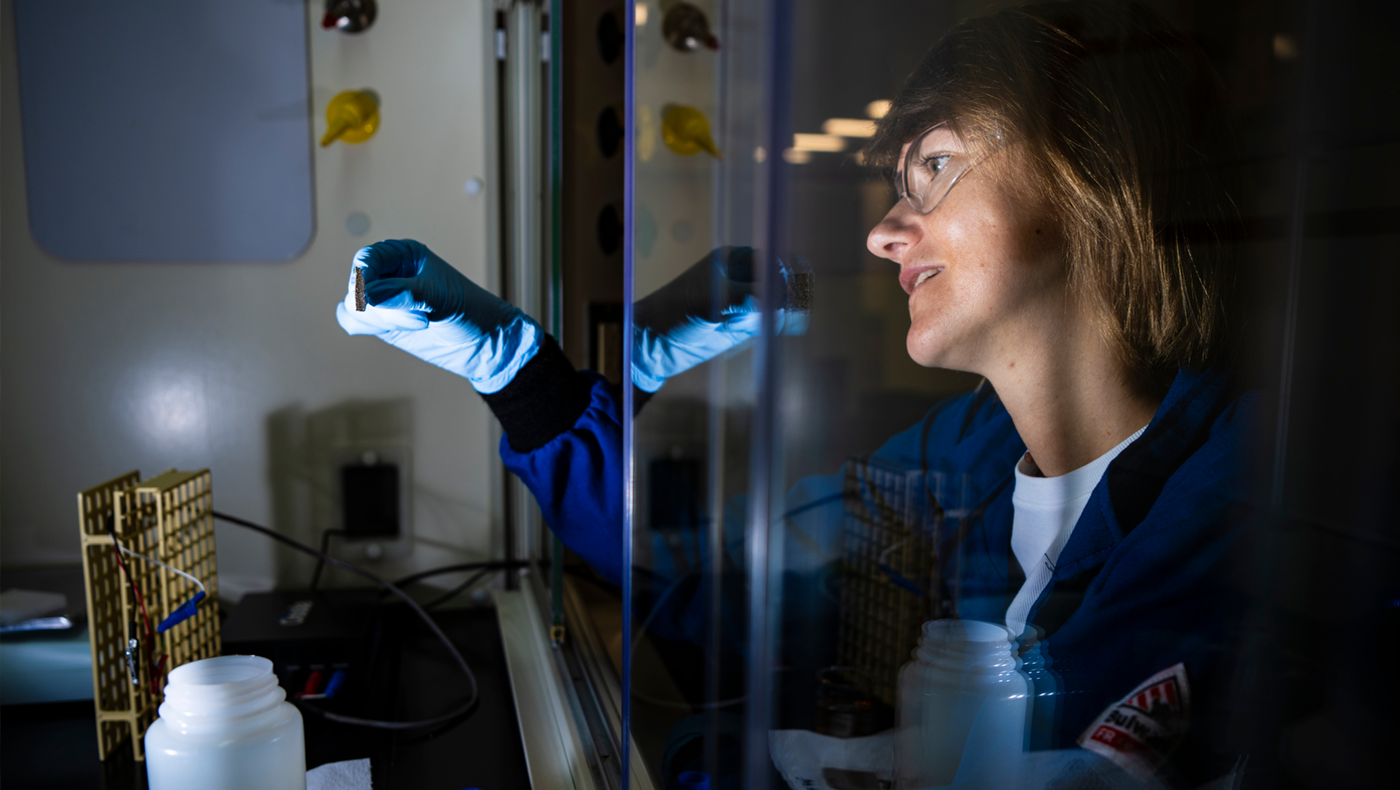A recent discovery has the potential to advance both the early detection of cancer and the sustainable production of chemicals such as ethanol, which is widely used as a mixture in gasoline.
Magda Barecka, assistant professor at Northeastern University with a joint appointment in chemical engineering and chemistry and chemical biology, has reported an unconventional method of separating carbon isotopes from carbon dioxide, a greenhouse gas responsible for global warming, using an electrochemical process.
“This is something that can have both an impact on human health and sustainability,” she says. “But for me, what is the most exciting is just the fact that we really changed the way that we think about separation of isotopes, and that this potentially opens application of stable isotopes to much broader use, including detection of different diseases.”
Read more from Northeastern Global News.
Photo by Alyssa Stone/Northeastern University.

